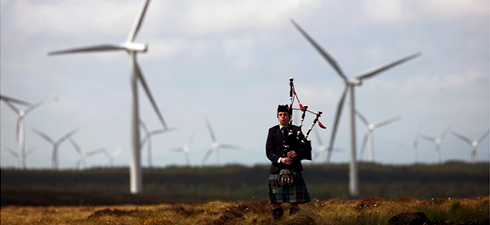"It's Scotland's oil" is one of the most highly charged slogans in Scottish politics. First used by the Scottish National Party in 1974, the notion that Scotland "owns" up to 90% of the North Sea's reserves remains one of the strongest sources of grievance for nationalists.
And in the next two years, as Alex Salmond leads the country into a referendum on independence, it is likely to become one of the central arguments for nationalists: they believe it will help decide the fate of the UK.
Ever since it became clear that North Sea oil fields would generate immense riches, the SNP has insisted that that wealth has been squandered by successive governments at Westminster. They point out that Norway, a country with a similar population to Scotland at just under 5 million, has saved much of its oil income: surplus revenue is ploughed into the government pension fund, which is now Europe's largest owner of shares and is worth about 3.3 trillion kroner (€434bn).
The SNP argues that if you extend a line east from where the Scotland-England border hits the coast north of Berwick, the division of the seabed would give Scotland control over nearly all North Sea oil and gas fields.
The Scottish government, which is drawing up a detailed case to support that 90% claim as its civil servants prepare for the referendum, asserts the North Sea will generate about £54bn [€64bn] in revenues over the next five years, while its "asset base" is valued at roughly £1tn [€1.19tn], including remaining reserves.
Salmond claims that, combined with Scotland's significant offshore wind and marine energy resources, and other industries such as whisky, this would make Scotland the OECD's sixth wealthiest nation, leaving the rest of the UK trailing in 15th place.
Was this article useful? If so we are delighted!
It is freely available because we believe that the right to free and independent information is essential for democracy. But this right is not guaranteed forever, and independence comes at a cost. We need your support in order to continue publishing independent, multilingual news for all Europeans.
Discover our subscription offers and their exclusive benefits and become a member of our community now!












